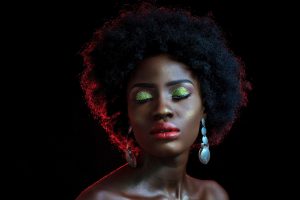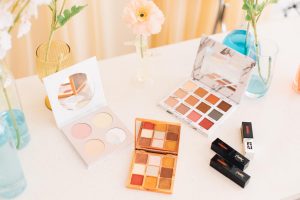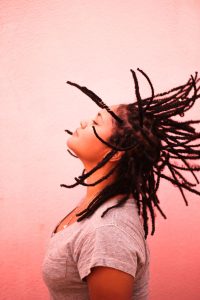
COMMENTARY: Racism in the beauty industry needs to end
Instagram makeup artists, beauty YouTubers and celebrity beauty brands seem like trivial aspects of a late-stage capitalistic society. In the middle of a massive recession, the beauty industry is growing at a rapid rate.
The beauty industry is very racist and signifies underlying race problems in Western society. While there are some companies that cater to Black beauty or promote an equal distribution of products across all races, it is not enough to offset the majority.
Colonization of beauty

In Western cultures, the standard of beauty is whiteness. This means that the beauty industry defines their “ideal” version of beauty as people with light skin, big eyes, straight and shiny hair, slim noses and long lashes. As a result, people of color are marketed beauty products that allow them to conform to those standards, rather than celebrate and appreciate their natural skin tones and hairstyles.
Unilever’s popular skin whitening product, ‘Fair & Lovely’, came under fire mid-June because of the growing demand to stop placing emphasis on pale skin in India. Instead of removing the product, the company chose to rename it ‘Glow & Lovely.
This is an example of not fixing the problem. White beauty, like anything white, should not be the only idea of beauty, especially in a country that white people invaded and colonized.
Instead of continuing to allow this to happen, the beauty industry should be more proactive in learning how their products contribute to the continued colonization of the culture.
Makeup favors light skin
Makeup companies release their foundation and concealer lines in varying colors of skin called ranges. Ranges favor white people or those with lighter skin.
A white person can easily buy a foundation for their natural skin color, their skin color after a tanning session and their skin in the winter very easily and usually all in the same line of products. However, people with darker skin usually get four or five shades to choose from for their makeup.
When Rihanna released her Fenty Beauty line in September 2017, the makeup made headline news for its 40 shade range. While other companies had done large ranges before, those ranges still favored white and lighter skin tones.

Most blushes, bronzers and highlighters are made for people with lighter skin, because of the lack of pigment in the product. Deeper skin can handle more pigment, but these products are not produced at the same rate. Youtuber Nyma Tang creates videos of herself trying out the darkest bronzers in a line, often to poor results.
Companies have made attempts in correcting their lack of diverse offerings, like Makeup Forever, but those are few and far between. When companies do try to promote diversity, they whitewash their models like L’Oreal did with Beyoncé in 2008.
Companies might also try to market a whole line to non-white people, but that almost never goes over well. For example, MAC Cosmetics’ 2016 line introduced a Native American themed “Vibe Tribe Collection,” which was just blatant cultural appropriation.
The beauty industry is massive but is completely dependent on word of mouth and influencers. Instead of following problematic influencers like Jeffree Star or Laura Leigh, people should be following beauty gurus of all races like Tang or Jackie Aina.
The discrimination of hairstyles
The beauty industry is not just fixated on makeup and skin color, but also on other genetic factors, like hair texture.
Non-Black peopleーmostly white peopleーact in two very different ways when it comes to Black hair. They fetishize it or they discriminate against it.
When non-Black people obsess over Black hair, it can de-humanize the individual, especially if someone touches a Black person’s hair without an invitation. If a non-Black person thinks that Black hairstyles are un-professional, this reinforces the issue of whiteness in the industry.
The people who want want to touch someone’s hair might believe their intentions are good (even though they are not) whereas hair discrimination is more immediately harmful and causes straightening products to be popular.
Hair is different for different people and it acts differently depending on texture, thickness and genetics.

Black people who choose to have their hair done in locs, Bantu knots or braids to preserve their hair, highlight their culture or because they like the style are told their hair is not professional. This does not only happen with employers but schools as well, where students are sent home and told to come back with an “appropriate” style.
People need to demand companies like L’Oreal, Unilever and Procter & Gamble stop producing skin-whitening products. Johnson & Johnson already listened to their consumers and promised to drop their ‘Clean & Clear Fairness Line.
California Governor Gavin Newsom signed a law that banned hair discrimination, making California the first state to protect people in the workplace and public schools from discrimination because of their hair. Other states and elected officials need to follow in Newsom’s footsteps.
It is easy to trivialize makeup and hair, but no one should. Like every aspect of Western society, beauty ideals and perceptions are rooted in colonization and racism. By ignoring it or dismissing these issues, people are allowing the beauty industry to continue catering to whiteness.
All beauty consumers need to demand inclusive products for non-white persons and the discontinuation of products normalizing light skin beauty standards.
